|
By Meg Moore Bridget interviews Amanda Hanna-McLeer, the Post-Production Supervisor of 'Broad City' and 'High Maintenance', who also writes and directs in her free time about mental health in the film industry and protecting your boundaries. I just wanted to say how grateful I am for someone to be finally writing about this, 14-hour work days and overnights definitely have an effect on one’s mental health. Thank you for joining us. That’s something I’ve been wanting to write for a really long time, and it’s difficult to write something like that while you’re working. You don’t want to offend anybody, you don’t want to rock the boat too much because you know, in this industry especially, that your job security relies on who you know and networking. I had written drafts loosely of something like this in the past, on particularly bad jobs, and then when the pandemic hit, I thought I have no one that I’m accountable to right now. This is the perfect time, especially because I had a feeling with the pandemic that we’d be asked to do things that were not safe. I’ve been asked to do them in the past, I’ve been asked to overwork myself and give up personal time for my job, and with the pandemic that can only be exacerbated. I felt it was really crucial to get it out at the time that I did. I had actually written it early in the pandemic in April and I had been pitching it, sending it out to people and it didn’t get noticed in Current Affairs until June. Even then it was still timely, I still had things I had to adjust. We were seeing as I mentioned in the article, that film crews and film workers were being used as guinea pigs for how to go back to work, and that’s unacceptable to me. It was the perfect time to start to talk about it, think about it and reflect on it. I had coworkers who were always very career driven, and I am myself, but I also would try to steal people away for lunch and I live in New York City, so I’d say “Let’s go to Bryant Park for Lunch, get away from your desk, that is so unhealthy” and some people were really hard to convince, but when all of this happened those same people reached out to me and said “oh my gosh I’ve completely realigned all my priorities, and I’m so glad I’m seeing what I was missing out on when I was working those 12, 14-hour shifts”. You discussed in your article being over worked for someone else's enjoyment was normal before the pandemic, do you think executives and showrunners will change their perspective on these horrendous conditions after the pandemic? I would hope that they too benefited from some free time to reconsider their priorities because they are also over worked. It’s this hierarchy, there's the studio, there’s the showrunners, and everyone has to answer to somebody else. It can be difficult, especially when timetables are crunched, with our short attention spans, the prevalence of fast media everyone wants to get things out really quickly. I think it’s more likely, in order to change things for the working class of the film industry, people that represent most of the industry that keep it running, like myself and my colleagues, that if we set the standards, with the help of unions, but also with solidarity and letting each other know that this is no longer acceptable, communicating with one another and then putting the pressure on our employers to do that, because I think it’s really hard to wait around and expect somebody who’s not on the ground with you every day, or with you in your apartment when you’re waking up at 9 in the morning and answering emails on your phone or with you in those late nights, it’s really hard to convince them that things need to change. Also considering that people who are higher up have been in the industry for a really long time, and they’re accustomed to the way things are, and they don’t really have any incentive to change it because they’ve benefited from it. It’s challenging to get them to shift. That’s the thing that’s really important to remember, there’s this yearning to go back to “normal”. It’s a very scary time for a lot of people, they’re either unemployed or they’re working in conditions that are not ideal, so they’ll yearn for that normalcy but it wasn’t really normal before. Normal wasn’t really working. I’m hoping that when we do get past the pandemic, people remember that they enjoyed spending more time with their family, or finding hobbies to rehabilitate or find new ones. I hope people will strive for a better work-life balance.  List of film unions from Google. List of film unions from Google. What do you think us as filmmakers can do about this? The big thing that I’m working on right now is unionizing. If you’re not part of a union, try to look into ways to unionize, it’s really essential, our labor union has been gutted for the past few generations, you can date it all the back to the red scare, the black lists; I think it’s important to find community and reach out and talk to people. One of the issues I had when I was working on these shows and working crazy hours is you feel pretty lonely and you just assume that everyone else is doing it and that you’re the only one that is having an issue with it. But once I started talking to people it was miraculous, I talked to other supervisors like myself, and they were feeling the exact same way. I not only had an outlet to vent, I also had another person to go “hey I’m getting paid this on that show, that doesn’t seem right. What are you getting paid?” and they would say “Yeah that doesn’t seem right, I’m getting paid this”. It’s about sharing that information and not creating this culture of fear or nervousness about pay transparency, we have to be transparent about what we’re being paid in order to move forward and demand better rates and conditions. If we don’t, we’re just kind of in the dark and we think what we’re going through is acceptable, so that’s a huge thing, community building and talking. Weirdly social media has been really wonderful in connecting me to people who are not just in my inner circle in New York, but all over the country. That’s the biggest thing, just talk to your fellow humans. 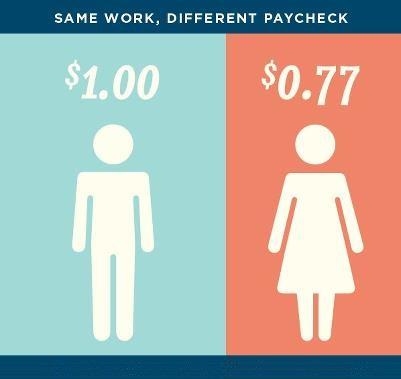 Image showing age gap between men and women. https://www.kvcrnews.org/post/equal-pay-day-calif-women-work-close-gender-pay-gap Image showing age gap between men and women. https://www.kvcrnews.org/post/equal-pay-day-calif-women-work-close-gender-pay-gap There’s a lot of inequality with women getting paid vs men in the industry. Absolutely, and in post a lot of the administrative positions are filled by women, so it’s a bunch of women who have been taught to accept what they’ve been given, not question it too much, but there’s also power in that kind of sisterhood you can have and I’ve seen that on several shows. But all issues of pay disparity affect everybody, I’ve talked to several coordinators and supervisors that when I ask how much are you being paid, we're being paid way under what I thought they were on major network shows and so really it affects everybody. You brought up that most filmmakers are non-union, meaning they have zero benefits, but they have longer hours that they don’t get paid overtime for, what do you think is the solution to this? I think people should go and see if there has been union efforts in the past for their specific role and look if they can start up one, I think in the meantime if you are not unionized you have to start advocating for yourself and advocating for your colleagues. I had an interview recently and I asked for the rate that I thought I deserved, it was more than I had gotten in the past but when you start negotiating that way that means you’re setting the bar higher for the next person that comes up for that job interview and if you’re then transparent if they're going in for that interview, you can tell them this is what I asked for this is what you need to do. There’s plenty of things we can do, even without a union to protect ourselves. For post supervisors, we typically have 60-hour weeks which is insane, it makes no sense, you’re supposed to have a 40-hour week, how are we at 60? The thing I learned recently is that it's not required, I can negotiate that when I go into an interview. I can ask what the hourly requirements are, they can say 60 and I can say, well that’s cool, I want 50, and even 50 is above the 40-hour work week we’re supposed to have. Knowing things like that, educating yourself on labor movements, the history of them and what has happened since then. A union is wonderful but people find loopholes around a union. I’m fighting for one now but I’ve seen abuses on union sets, so it’s really important to have a union and use it and to make sure that your voice is heard within your union and to have backbone in asserting those things. It can be hard because this is an industry where you get your job based on how well you do on your last one and you have to network in order to know the right people, so you never really want to cause too much of an issue - but you have to do it for yourself and think of yourself within the larger community. Where does one begin about joining a union? There are people who have been in the industry for a really long time who are not union, there are editors fighting to be a part of the Motion Pictures Editor Guild, and it can be really hard if you don’t have those contacts to get on a union show. Some shows I’ve heard in the past flip union and then the people who get into the union that way are extremely lucky, it rarely happens, otherwise it’s connecting through the right people. It can be really challenging. Post supervisors don’t have a union, so when I wrote the article one of the things I called for was that we need to be unionized. There were some options, you can either create your own union that is unaffiliated but that’s really challenging, it’s a lot of work, or you can look into an existing union and ask, would their union benefit from my membership, and how closely aligned are my duties and responsibilities with this union? For my role I oversee editors and assistant editors, I couldn’t do my job without them, and they couldn’t do their job without me, so I had to think about that when I was appealing to the motion pictures editors guild and for me that made sense to start this effort and appeal to them. That isn’t always the case depending on what you’re doing in the industry but in that case it made the most sense to do it that way. It’s all an uphill battle, it takes a long time, organizing takes a really long time. At the beginning of it you don't know how efforts are going to go. We’re appealing to the motion pictures editors guild, we’ll see how that goes, but it just felt really important to do at this specific time because no one’s going to advocate for us, we have to start advocating for ourselves so that maybe someone can take on our cause. 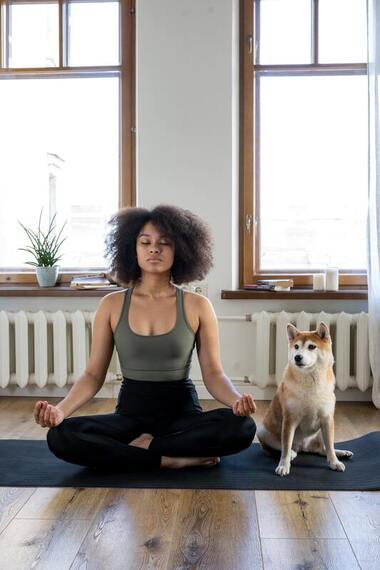 Woman meditating with dog. Photo Courtesy of Cottonbro Pexels.com Woman meditating with dog. Photo Courtesy of Cottonbro Pexels.com What can filmmakers do if they are experiencing burnout? What are healthy ways to deal with stress? I’ve run the gamut of trying to find the answer for that over the past couple of years. For me it’s exercising, for a lot of jobs in the industry you’re stuck behind a desk all day staring at the same thing, you need to take breaks. If people won't take a break for lunch, that's the first thing they can do. If someone’s working right now, and they’re feeling stressed and overwhelmed, take the break for lunch, leave the office. There’s this culture on some shows I’ve worked on where everyone sits together and eats lunch together in the office still and that boggles my mind because everyone just starts talking about the show and the job and then lunch breaks and you’re back on the job - so it’s not even a break, you’re entitled to that time. Whether it’s 45 minutes, whether it’s an hour, you need to give yourself that break, you’re not accountable to anyone in that time so you can do whatever you’d like. That’s huge. Green space, getting into a park, anything, is super important also. I would drag my coworkers to Bryant Park and just sit for a second, it’s so funny because some were with it, and others would check their phone, terrified that they would miss some email, some call, from someone. If you can’t take this hour when you’re working all day, what are you doing? Breaks. Also, putting your foot down when you’re not getting paid to do extra work. Don’t do the extra work. I was talking to someone recently who’s a production assistant who’s also a coordinator who was doing two roles for one rate, which is obscene, and they’re working on the weekends without getting paid, and it’s so common that it happens, but it’s unacceptable, and I was telling them don’t do the weekend work, you get an email, ignore it. That’s what I did, I would get emails on the weekend all the time and I would ignore them, because that’s not their time, this is my time, especially when so much of my time is taken by that throughout the week. I explained to this person that despite doing that, despite setting those boundaries on the weekends at a minimum, I was still asked back to shows, I still was able to secure jobs on prime time television. It’s not something that is going to threaten your future work opportunities. The same goes for the weekday, it’s unacceptable that we’re still going home and sending emails until the middle of the night, or that anyone would expect that of us. On some shows I would wake up and before even getting out of bed I would check my email because there was some urgent thing that I would need to resolve before I even got up to brush my teeth. That’s not a life, we can’t do it. Put your foot down, don’t work when you’re not getting paid. It’s one of those things where it’s like “obviously I wouldn’t work and not get paid” but it happens so much, and especially for people that are starting out in the industry and are eager to please and get their foot in the door. It’s tough. I read that your primary goal is to become a director, we need more female directors in the industry of course. What’s next for you? I think the figure is somewhere around, 8% of the top grossing films are led by women directors which is crazy. That’s the thing, as much as these companies say that they’re committed or these productions say that they’re committed to hiring female filmmakers, I don’t know how they deliver. They don’t always deliver on that. It’s challenging to get your foot in the door and get recognized. Some of the things I’ve done is, I made a film, Brighton, I fit that into a two week span where I had some free time in between post jobs, writing on the weekends, that’s the thing! You need that time on the weekends to do your thing because post was just my job, I saw it as just a job. My real focus was directing and writing, so yeah, just fitting in that time was really essential. I made Brighton, I’m pitching a series right now that I wrote, a 10 episode series that I’m very excited about. I was accepted into IFP in 2019 for. IFP is an independent filmmakers project, it’s like a speed dating for filmmakers where you can pitch your project to producers in the industry. I’m working on that but the pandemic of course throws a lot of that stuff. I’m trying to find my footing again with that, but finding work when I can, writing because I don’t need a full film crew for that so that’s really nice. Last year I had a really wonderful experience, I’m on a New York Filmmakers group for women, and someone had posted about a project that was being shot in Amsterdam and New York and I thought this was surely fake but I’ll apply to it anyway and it ended up being a very real project, and it was my first time directing anything episodic, it was a web series. I flew out to Amsterdam, and we flew back to New York. We got to work with Catherine Curtain from Orange is the New Black which was really cool. I try to find directing opportunities whenever I can. They’re really hard to come by, it was the first project that I hadn’t paid for myself or written myself and put all that producing time into. That’s why it was a really interesting experience. That’s kind of where I’m at right now. Those opportunities don’t come by that often, so I do hope that we can pave the way for more opportunities like that. Where can people find you? If anyone wants to reach out DM me.
If you’re going through anything, if you’re having a tough time at work or you feel like you’re being exploited at work please reach out to me, I am very open to talking about that stuff and figuring out a way to help you take more control over your workplace.
0 Comments
Leave a Reply. |
AuthorBridget Johnson is the president and co-founder of Dare to Dream Productions. She writes and directs thought-provoking films that inspire others to follow their dreams. Archives
March 2021
Categories and authors
All
|
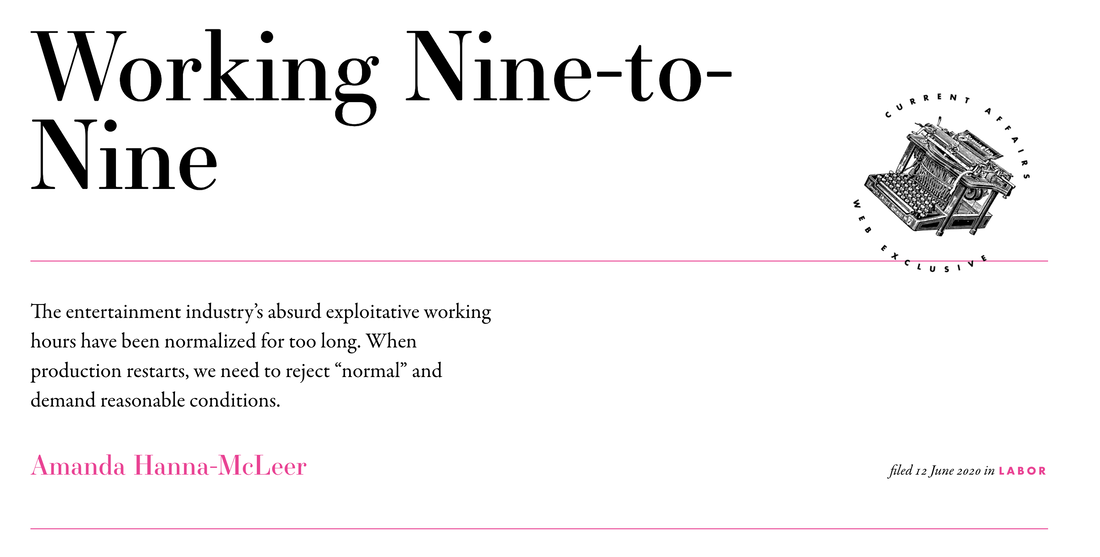
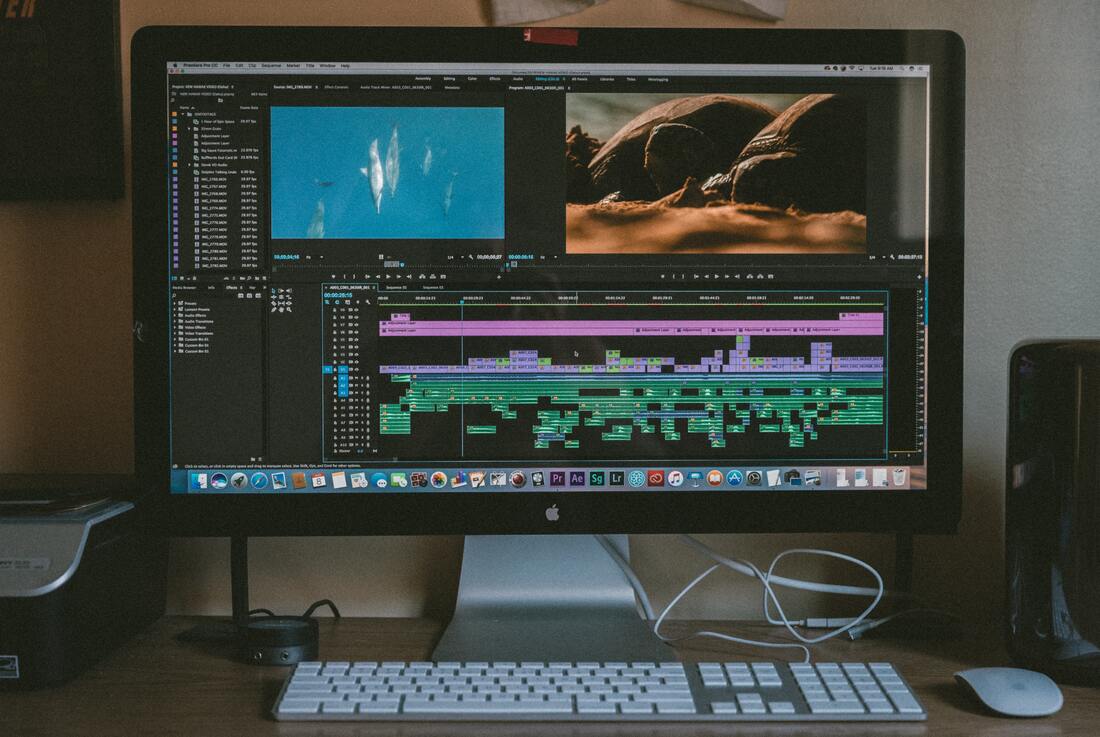
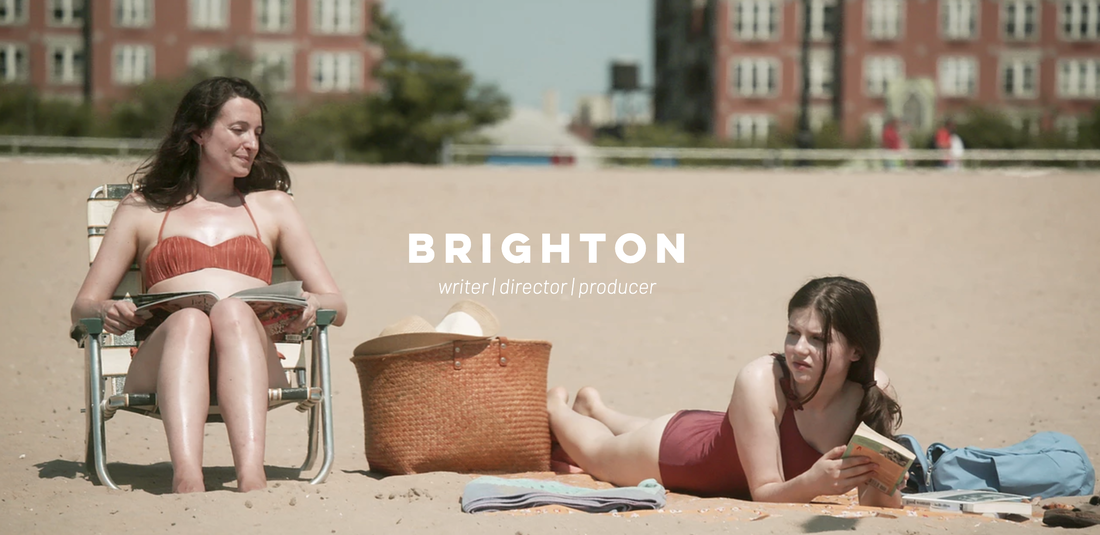
 RSS Feed
RSS Feed